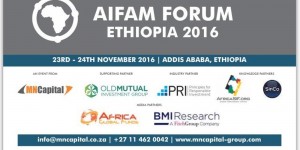Ethiopia International Trade Expo is a leading international trade exhibition exhibiting a wide range of products from different industries and includes general trade, food and agriculture, construction equipments, building materials and equipments, electrical and electronic appliances, automobile products, information technology, oil and gas equipments and products, fashion accessories and products, textile products and much more to add to the list. The trade serves as an exclusive platform where the buyers and sellers meet and both get benefitted. It also generates huge volumes of sales.

The most anticipated Miss Ethiopia USA Pageant 2016 is in full effect !!! The Miss Ethiopia USA Pageant was found to feature Ethiopian women in the U.S pursue their educational dreams, achieve personal growth, rediscover and take pride in their Ethiopian heritage, as well as help them lay a strong foundation as future leaders of the world. Beautiful Ethiopian women if being crowned as Miss Ethiopia USA and showcasing beautiful Ethiopia is your dream this is an opportunity to make it HAPPEN. Act NOW! International Media, Honored Guests and Live performance are a few that would be part of this phenomenal event.
Contact Nati for vendor opportunities
The SEEP Network has partnered with Pollen Group to offer an introductory course on inclusive market systems development (MSD) in thin markets, in contexts such as post-conflict, environment related emergencies, and highly underdeveloped markets with limited or distorted private sector engagement. The training will strengthen practitioner application of systems-thinking and facilitative approaches to program design and implementation. The outcome of this course is a more comprehensive understanding of how to instigate systemic change in thin markets, leading to larger and more sustainable impact.
Throughout the training, participants will engage with a fictional case study based on the experiences of SEEP members implementing MSD programs in thin markets. This case will help practitioners to identify vulnerable groups, analyze thin market constraints, develop intervention strategies that are inclusive of vulnerable groups, identify leverage points for systemic change, and design partner engagement strategies that spur behavior change among public and private market actors.
This training is aimed at mid to senior level managers of market systems programs that may have some familiarity with the approach but have not experienced an in-depth training on market systems, M4P, or facilitation. The training will cover 6 main topics:
- The foundational concepts of market systems development;
- Frameworks to shape inclusive strategy and intervention design;
- How programs can engage in thin market contexts and, within these contexts, target vulnerable or marginalized groups as beneficiaries of systemic change interventions;
- Tools and tactics on how to engage market actors while promoting ownership and sustainability;
- M&E for systemic change;
- Organizational processes for more flexible and adaptive programming.
Audience
This training is aimed at mid to senior level managers of market systems programs that may have some familiarity with the approach but have not experienced an in-depth training on market systems, M4P, or facilitation.
Participants will gain:
- Strengthened understanding of complex systems, systems-theory, and its application to analyzing problems;
- Increased knowledge of market systems facilitation tools and frameworks to strengthen the design of project intervention strategies;
- Strengthened capacity on the use of facilitative tactics during project activities, including strengthening formal and informal feedback loops to inform learning and planning;
- An understanding of thin markets versus thick markets, and how to engage marginalized and vulnerable populations.
Meet the Trainers:
- Raksha Vasudevan joined Pollen Group Consulting after two years working in the humanitarian sector in west Africa, Europe and the Middle East. As a market development Strategist, she has undertaken market analyses of the livestock sector in northern Kenya and access to digital financial services in West Africa. Previously, Raksha worked with a management consulting firm in Canada and a microfinance NGO in south Asia. Raksha holds a Master’s in Development Studies and a Bachelor’s in Commerce.
- Christine Livet is a Senior Strategist with Pollen Group Consulting, with extensive experience working with market systems and facilitative programs in Kenya, Uganda, and Tanzania. She specializes in organizational change management, developing performance management systems, and training/mentoring of field staff in market systems and facilitation. Prior to working with Pollen Group (as well as formerly under Engineers Without Borders Canada), Christine worked in the dairy sector in Nepal and with the Canadian donor agency supporting the design of economic growth policies and strategies. She studied international development and economics at the University of Ottawa.
The Ethiopian Christian culture dates back to the emergence of Christianity and continues vibrantly today. This long tradition makes Ethiopia a unique place to visit and study. Our seminar focuses on Ethiopian Christianity and its connections with the Eastern Mediterranean in Antiquity and the Middle Ages. The theme includes the early reception of Christianity in Ethiopia, the emergence of a Christian state, and the development of the distinct Ethiopian Church. We explore the relations between Ethiopia and the Roman Empire, Persia, Egypt and Palestine up to the Crusades, and discuss distinct Ethiopian traditions in connection with Judaism and Islam. We will visit the late antique city of Aksum and the world-famous rock-hewn churches in Lalibela, as well as number of ancient monasteries, participate at a pilgrimage and meet with students and professors at two Ethiopian universities.
The seminar gives an exceptional opportunity to get to know Ethiopian Christianity which is an often neglected field of study in Nordic universities, despite the fact that several important early Jewish and Christian texts are only preserved in Ge’ez, the ancient Ethiopian language. We pay special attention to the diverse cultural manifestations of religion, including archaeology, art history, architecture, music and literature, theology and Church practices, general history, trade and international relations. The participants are invited to study texts in their traditional contexts and as part of the wider material culture.
Our seminar is the second of a number of Nordic PhD-seminars arranged by the Nordic Network for the Study of Judaism, Christianity and Islam in the First Millennium (NNJCI), a network of PhD students and faculty from Nordic academic institutions. For more, see http://nnjci.mf.no/.
Structure of the seminar
The duration of the seminar will be two weeks. The program covers several major sites in Ethiopia. In addition to excursions, there will be lectures given by experts on various topics. Each participant is also required to prepare a short presentation (ca. 20 minutes) on a related topic based on reading of relevant materials (see the list of reading below). The student may present either his/her own PhD project or a paper on a theme connected to the program.
Practical information
Participants: The number of participants is restricted to 12 students (and three teachers). The seminar is for PhD-students, but it will also be open for advanced master’s students and postdoctoral researchers if the available places are not filled by PhD-students.
Cost: The cost for the course is 9.000:- SEK excl. international air fare. This includes all domestic transport, half-board accommodation, all entrances, guide, lectures, materials. Travel to Ethiopia must be with Ethiopian Airlines in order to have substantial reduction in domestic fares. The flights from Stockholm to Addis Abeba should not be more than 5000 SEK if booked early. All participants are themselves responsible for booking the international flights (including their way to Stockholm.)
Reading list: All participants should prepare for the seminar by reading approximately 300 pages. The reading list will be distributed before September 1st.
Credits: The seminar equals 5 ECTS, but participants are themselves responsible for having these credits accepted by their doctoral program.
Organizers: Lund University (Samuel Rubenson, Mengistu Gobezie) and University of Helsinki (Outi Lehtipuu, Anna-Liisa Tolonen, in co-operation with the Finnish Institute in the Middle East).
Information: Follow our facebook-page (https://www.facebook.com/groups/1625904417675426/) or contact Samuel Rubenson (Samuel.Rubenson@teol.lu.se) or Outi Lehtipu (outi.lehtipuu@helsinki.fi).
Application
Applications should be sent to Outi Lehtipu (outi.lehtipuu@helsinki.fi) before April 15th 2016.
Accepted applicants will be informed by May 10th, and be asked to pay a deposit of 4500 SEK by June 1st.
Click here for the application form.
 The Ethiopian Chamber of Commerce and Sectoral Associations (ECCSA) is organizing the 9th Ethio-Chamber Interna¬tional Trade Fair from Nov. 09 – 13, 2016 at Addis Ababa Exhibition Center & Market Development Enterprise.
The Ethiopian Chamber of Commerce and Sectoral Associations (ECCSA) is organizing the 9th Ethio-Chamber Interna¬tional Trade Fair from Nov. 09 – 13, 2016 at Addis Ababa Exhibition Center & Market Development Enterprise.
The overall objective is to contribute to the development of competitive industry and business sector mainly through the promotion of products and services.

The Africa Investment Funds and Asset Management (AIFAM Forum) convenes regional capital owners (pensions, sovereign funds, insurers, central banks etc.), fund managers, and investment professionals from the continent to meet with institutional investors and other stakeholders who are interested in opportunities on the continent. The meeting is an invitation-only session on developing viable financial products/structures that can increase the availability of capital to invest in the continent’s infrastructure, deepen capital markets innovation and mainstream investing alternative asset classes.
Young African practitioners will have the unique opportunity to learn from world renowned international experts in Aikido, embodied leadership, somatic education, and conflict resolution. In addition, the summit will bring respected East African traditional elders to share their wisdom and ancient traditions in resolving conflict. Together, these two facets of the workshop will provide African young adults, as well as their non-African peers, a rich perspective on the wealth of the ancient traditions of African nations, while they also benefit from the global perspective of non-African teachers. International experts and African elders will share their knowledge and practices with one another, providing a unique stage that places African tools and approaches to leadership and conflict resolution on par with Western and Asian practice and perspectives. The workshops will serve as an unprecedented cultural exchange and collaboration for peace.
he College of Business and Economics (CoBE) of Addis Ababa University (Ethiopia) together with Jönköping International Business School (JIBS) of University of Jönköping (Sweden) is planning to host an international conference on business and economics to be held 6-8 December 2017 in Addis Ababa. To this end, CoBE invites submissions of completed but unpublished papers that focus on contemporary issues pertinent to socio-economic development of Africa. The topic areas of the papers to be submitted for the conference focus on a wide range of issues within the disciplines of management/business administration, economics, finance, public administration and development management. Both theoretical and empirical works that are within the indicated disciplines and are of relevance for Africa will be accepted. The papers might address Africa as a whole, specific region in Africa, or specific countries in the continent. Submissions from anywhere are welcomed as long as they address contemporary issues in the development and transformation of Africa. The aim of the conference is to gather leading academicians working on issues relevant to the development of Africa, policy makers, and researchers to share their knowledge, new ideas as well as to discuss future changes in the socio-economic development of Africa. The conference also aims to provide an opportunity for young researchers and practitioners to interact with senior researchers working on Africa from around the world. It will also create a special opportunity for PhD students to present their works and obtain feedback from senior scholars organizing and/or participating on the conference. Furthermore, students from the varying disciplines of business, economics, public administration and development management will have an opportunity to know what is done outside their own disciplines.
